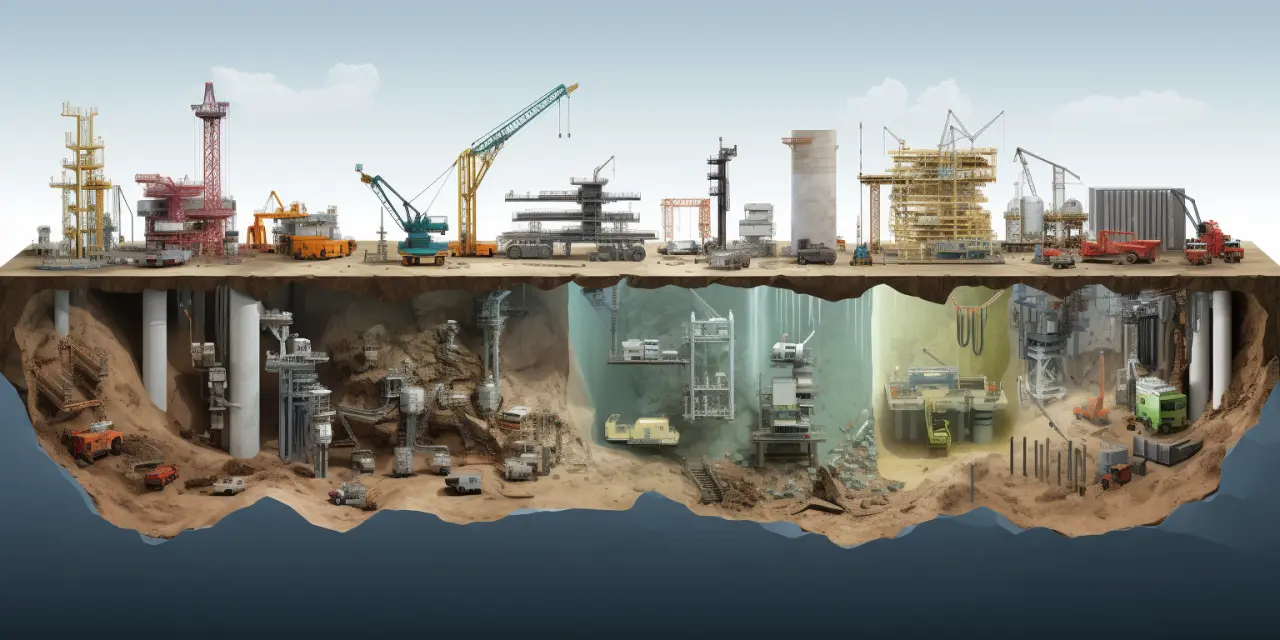AI in Geotechnical Engineering: Techniques and Applications
May 21, 2024
Category: Software & Tools
Admin

Geotechnical engineering primarily deals with materials like rock and soil. These materials are formed through complex and imprecise physical processes. These processes cause their engineering properties to exhibit varied and uncertain behaviour. The integration of AI in geotechnical engineering offers promising ways to address these challenges.
The complex geotechnical behaviours and spatial variability of these materials are difficult to model using conventional methods adequately.
Over the past many years, the ability of AI in Civil Engineering has acquired growing interest.
It has shown advanced predictive skills as compared to traditional methods, becoming a valuable device for modelling complex geotechnical engineering materials.
Overview of AI in Geotechnical Engineering
AI has become one of the fastest-growing industries in the 21st century due to its ability to analyse large amounts of incomplete and erroneous data. The effectiveness of these methods can be attributed to their ability to predict complex nonlinear relationships.
The most popular techniques of AI in geotechnical engineering applications are described below:
Expert System
– It relies on storing past human experience in decision trees.
– The decision tree logically processes data entered into the system to determine appropriate solutions.
– Requires a high level of confidence in inputs.
Fuzzy Systems
– It uses both logical and statistical approaches and can handle uncertain data.
– It is based on the concept of membership functions, where each variable has a probability distribution function.
Artificial Neural Networks (ANN)
– Artificial neural networks, or ANNs, are a type of artificial intelligence that attempts to replicate the behaviour of the human brain and nervous system.
– These Artificial neurons or nodes are a network of closely connected, adaptive simple processing elements. These nodes can perform large simultaneous computations for knowledge representation and data processing.
Support Vector Machine (SVM)
– Classifier based on statistical concepts.
– Initially, it was designed to find the best linear boundaries between classes with the widest margins.
Genetic Algorithm (GA)
– Natural selection and evolution drive GA, an optimization technique.
– It starts with a population of all possible solutions and evaluates the benefits of each solution using a predefined objective function.
– It selects the most appropriate solution.
| Also Read: Digital Twins: Exploring the Synergy Between BIM and IoT
Application of AI in Geotechnical Engineering

Let’s discuss the application of AI in geotechnical engineering:
Determining Soil Properties: To establish correlations between easily obtained physical properties and difficult-to-obtain mechanical properties.
Soil Classification & Profiling: To interpret the results of field tests to identify the site stratification and soil classification.
Slope Stability: To determine the critical sliding surface (2D or 3D) and estimate the safety factor.
Soil-Water Interaction: Correlating the hydraulic properties with other properties and predicting the effect of surface and groundwater on soil.
Tunnels: Predicting ground settlement, selecting optimum tunnelling technique, estimating stress and deformation.
Shoring & Retaining Structures: Predicting deformations, optimising design, estimating stability, and selecting optimum shoring techniques.
Shallow Foundation & Deep Foundation: In estimating the capacity, predicting the settlement and optimising the design.
Soil Liquefaction: Predicting the probability of liquefaction of soil based on field tests and mechanical properties for seismic design.
Soil Dynamics: Predicting dynamic soil properties like shear wave velocity, damping ratio, etc
| Read More: BIM Impacting Structural and Civil Engineering
Conclusion
AI in geotechnical engineering offers better predictions than traditional methods. The technology enhances various aspects of geotechnical work, from soil classification to foundation design. As AI advances further, it promises even greater improvements in infrastructure development.
FAQs
Q1. What are the AI tools for geotechnical engineering?
Ans. The most widely used AI tools in geotechnical engineering are as follows:
- Expert systems
- Fuzzy systems,
- Artificial neural networks (ANNs),
- Genetic algorithms (GAs), and
- Support vector machines (SVM).
Q2. How is AI used in geology?
Ans. AI helps geologists analyze geological data and learn about the deposit model in geology. It is also used to understand the formation process, and metallogenic rule assisting in mineral exploration and development.
Q3. Is a geotech engineer a civil engineer?
Ans. Geotechnical engineers are civil engineers specialising in understanding soil and rock behaviour, its properties, etc.








